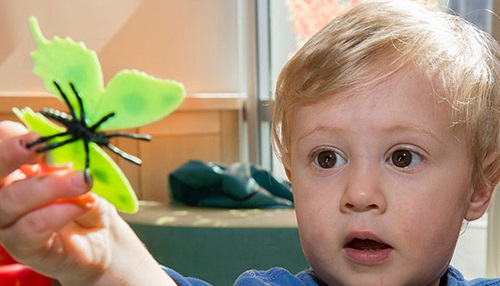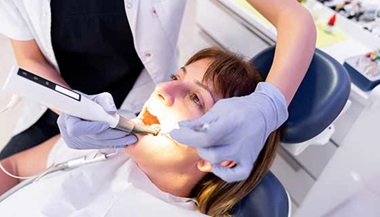What You Should Know about Babies Teething
Featured Expert
How to Soothe Teething a Baby
Few things are worse than a teething baby in the middle of the night. On this week’s On Call for All Kids, Rachel Dawkins, M.D., a pediatrician from Johns Hopkins All Children’s Hospital, provides some tips for parents to ease the pain of teething.
What are the first signs of teething?
Every baby is different on when teeth appear. Some babies get their first teeth around 4 months and some don’t have any teeth until after their first birthday. Teething can happen any time between 3 months and 3 years old. The first signs are often lots of drooling and a baby who rubs anything he or she can on the gums.
A teething baby can be cranky, crying, have difficulty sleeping and might be a little more irritable than usual. Some babies might have a low-grade temperature less than 101 degrees Fahrenheit. If your child is having fevers greater than 101, diarrhea or runny nose, it’s likely due to a virus and not due to teething.
How do you soothe a teething baby?
Give babies something they can chew on but not choke on. A firm rubber toy, a soft toothbrush, a cool ring or a cool rag are all good options. Some parents massage their own fingers along the baby’s gums, which can provide comfort. If all else fails, a dose of acetaminophen (Tylenol) can do the trick to ease pain.
Is there anything to avoid when your baby is teething?
Yes! Over-the-counter medications that contain benzocaine such as BabyOragel, Anbesol or Orabase should NOT be used for teething. The anesthetic in these products can cause a rare but serious (and sometimes deadly) blood disorder called methemoglobinemia. In fact, the Food and Drug Administration (FDA) has asked manufacturers of these products to stop marketing them for pediatric use.
The FDA also has discouraged the use of homeopathic teething tablets because of inconsistent amounts of belladonna found in these products. Be careful using amber teething necklaces. These necklaces pose a choking and strangulation risk. If you are using an amber necklace, make sure to remove it before naps/bed.
On Call for All Kids is a weekly series featuring Johns Hopkins All Children’s Hospital experts.
General Pediatric Clinics at Johns Hopkins All Children's Hospital








